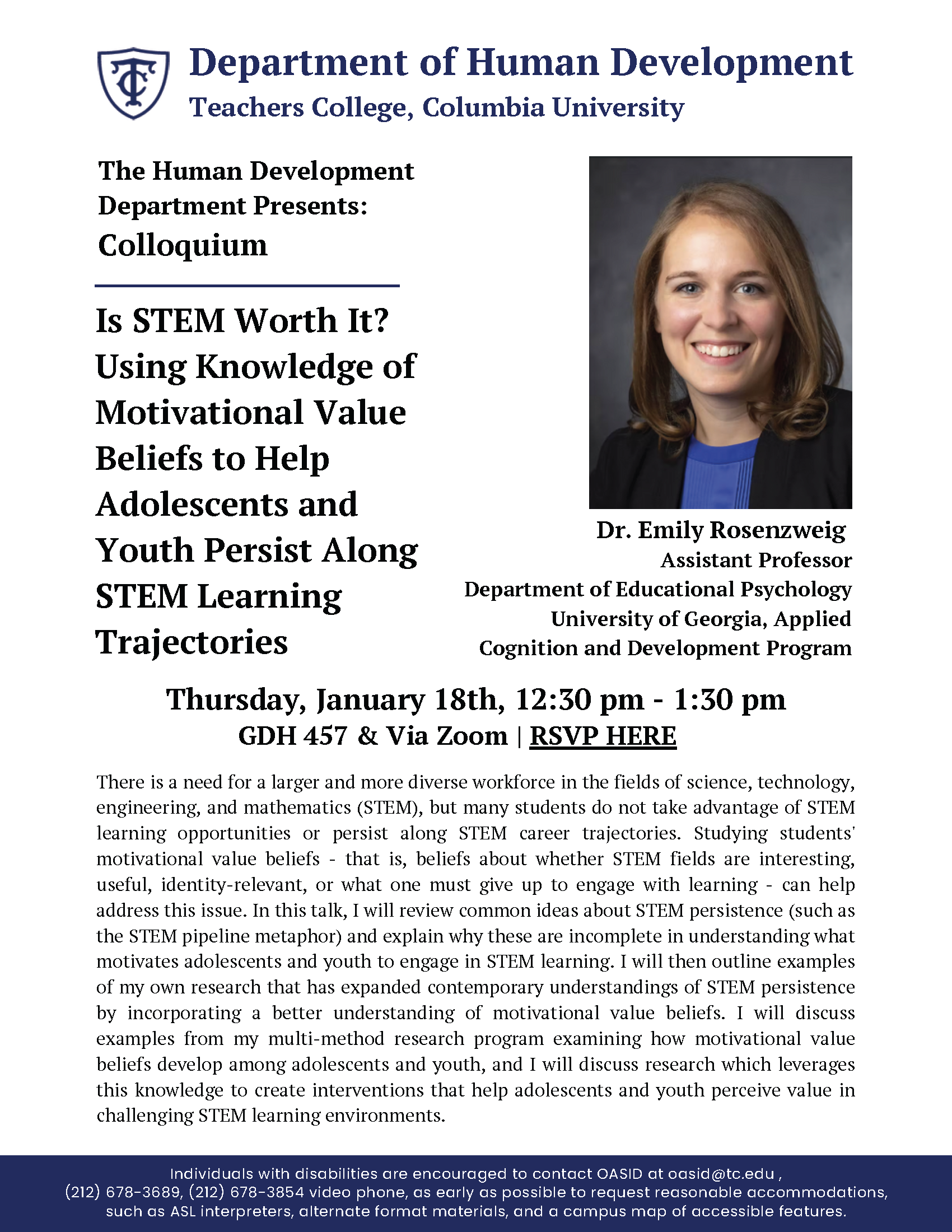HUD Colloquium Presents: Is STEM Worth It? Using Knowledge of Motivational Value Beliefs to Help Adolescents and Youth Persist Along STEM Learning Trajectories
The Department of Human Development Colloquium Series Presents:
Dr. Emily Rosenzweig
Assistant Professor Department of Educational Psychology University of Georgia, Applied Cognition and Development Program
"STEM Worth It? Using Knowledge of Motivational Value Beliefs to Help Adolescents and Youth Persist Along STEM Learning Trajectories"
There is a need for a larger and more diverse workforce in the fields of science, technology, engineering, and mathematics (STEM), but many students do not take advantage of STEM learning opportunities or persist along STEM career trajectories. Studying students' motivational value beliefs - that is, beliefs about whether STEM fields are interesting, useful, identity-relevant, or what one must give up to engage with learning - can help address this issue. In this talk, I will review common ideas about STEM persistence (such as the STEM pipeline metaphor) and explain why these are incomplete in understanding what motivates adolescents and youth to engage in STEM learning. I will then outline examples of my own research that has expanded contemporary understandings of STEM persistence by incorporating a better understanding of motivational value beliefs. I will discuss examples from my multi-method research program examining how motivational value beliefs develop among adolescents and youth, and I will discuss research which leverages this knowledge to create interventions that help adolescents and youth perceive value in challenging STEM learning environments.
To request disability-related accommodations, contact OASID at oasid@tc.edu, (212) 678-3689, as early as possible.
